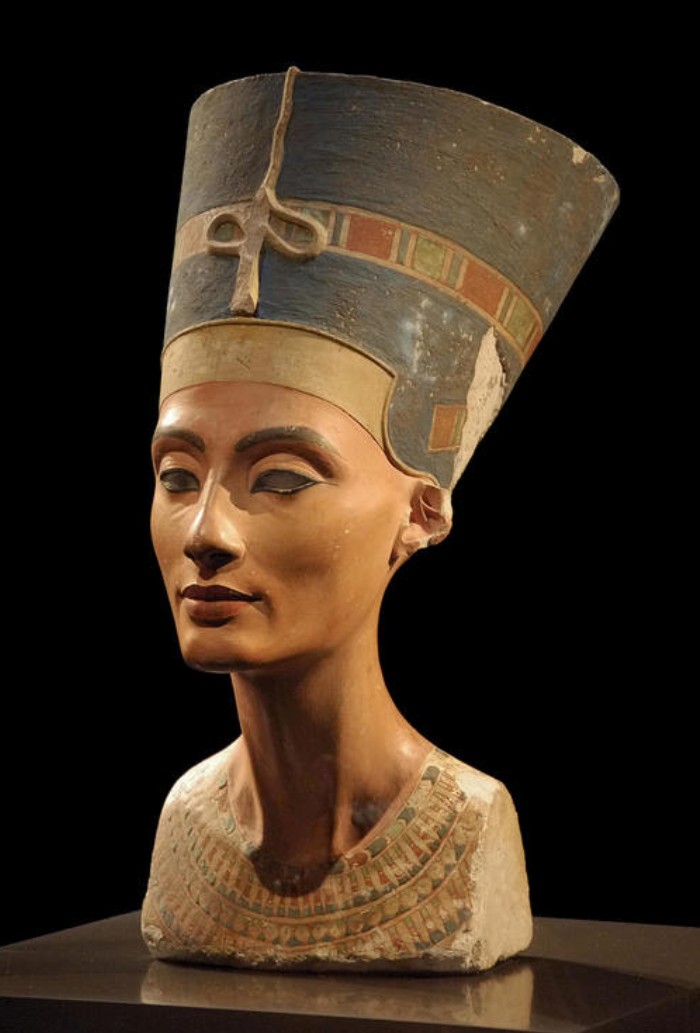
Nefertiti
ECCCF Home Stories Nefertiti STORIES Nefertiti August 9, 2019 19 0 Nefertiti (c. 1370 – c. 1336 BCE) was the wife of the pharaohAkhenaten of the 18th Dynasty of Egypt. Her name means, `the beautiful one has come’ and, because of the world-famous bust created by the sculptor Thutmose (discovered in 1912 CE), she […]
Beginning of the New Kingdom
The Middle Kingdom had been a time of unity and prosperity which dissolved during the 13th Dynasty so that by c. 1782 BCE a new power had been able to rise in the north of Egypt, that of the Hyksos. The Hyksos were Semitic peoples who established a seat of power at Avaris in Lower […]
Egyptian Empire
The Egyptian Empire rose during the period of the New Kingdom (c. 1570- c. 1069 BCE), when the country reached its height of wealth, international prestige, and military might. The empire stretched from modern-day Syria in the north to modern-day Sudan in the south and from the region of Jordan in the east to Libya […]
Queen Hatshepsut: Daughter of Amun, Pharaoh of Egypt
Hatshepsut, whose name means “Foremost of Noble Women” or “First Among Noble Women” (royal name, Ma’at-ka-re, translated as “spirit of harmony and truth”) was the fifth ruler of the 18th Dynasty ( ruled1479-1458 BCE). She was the daughter of Thuthmose I and Queen Ahmose and, as was common in Egyptian royal houses, married her half-brother Thuthmose II. They had […]
The Sun God & the Priests of Amun
There was another power in Egypt which had been growing long before Amenhotep III came to the throne: the cult of Amun. Land ownership meant wealth in Egypt and, by Amenhotep III’s time, the priests of Amun owned almost as much land as the king. In accordance with traditional religious practice, Amenhotep III did nothing […]
Neglecting Egypt’s Allies
The pharaoh as a servant of the gods, and identified with a certain god (most often Horus), was common practice in ancient Egyptian culture, but no one before Akhenaten had proclaimed himself an actual god incarnate. As a god, he seems to have felt that the affairs of state were beneath him and simply stopped attending to […]
Amenhotep III
Amenhotep III (c. 1386-1353 BCE) was the ninth king of the 18th dynasty of Egypt. He is also known as Nebma’atre, Amenophis III, Amunhotep II, and Amana-Hatpa, all of which relate to the concept of the god Amun being satisfied or, as in the case of Nebma’atre, with the ideal of satisfied balance. He was the son of the pharaoh Tuthmosis […]
Akhenaten
Akhenaten (r. 1353-1336 BCE) was a pharaoh of 18th Dynasty of the New Kingdom of Egypt. He is also known as ‘Akhenaton’ or ‘Ikhnaton’ and also ‘Khuenaten’, all of which are translated to mean ‘successful for’ or ‘of great use to’ the god Aten. Akhenaten chose this name for himself after his conversion to the cult of Aten. Prior […]
Literature in the New Kingdom
Between the Middle Kingdom and the era known as the New Kingdom falls the time scholars refer to as the Second Intermediate Period (c. 1782-c.1570 BCE). During this era rule in Egypt was divided between the foreign kings of the Hyksos in Lower Egypt at Avaris, Egyptian rule from Thebes in Upper Egypt, and control of the southern reaches […]
Middle Kingdom Literature
The Middle Kingdom is considered the classical age of Egyptian literature. During this time the script known as Middle Egyptian was created, considered the highest form of hieroglyphics and the one most often seen on monuments and other artifacts in museums in the present day. Egyptologist Rosalie David comments on this period: The literature of […]